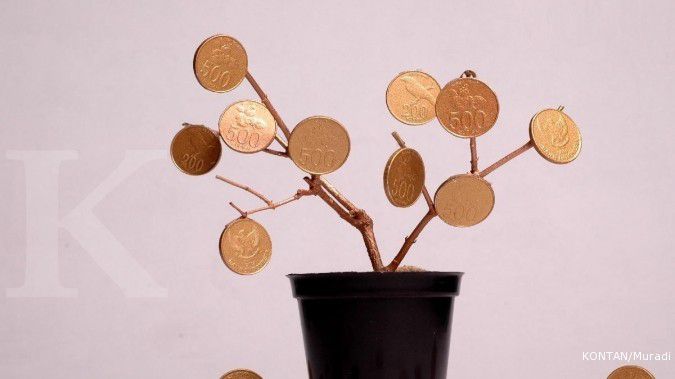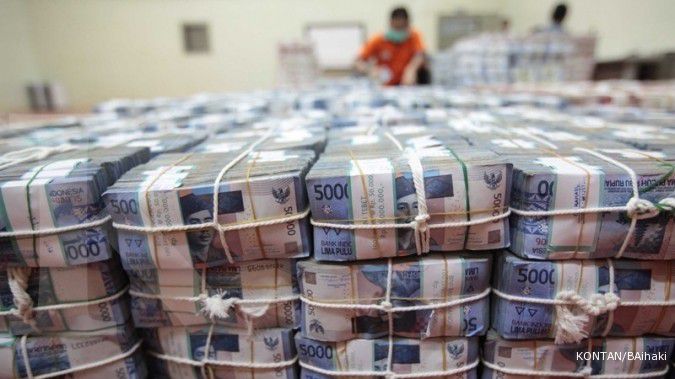JAKARTA. Volatile trading is expected to continue in the Indonesian stock market this week with investors still waiting for the exact time line of the US stimulus reduction, as well as calculating the impact of Bank Indonesia’s higher interest rate on the economy and planned increase in loan to value (LTV) ratio for houses and apartment purchases. The Indonesia Stock Exchange (IDX) remained under pressure last week as a sell-off by foreign investors continued over concerns since late May of the scaling back of the US stimulus program called “quantitative easing”, which has been the main driver of stock prices since late last year. In the last two days of last week, foreign investors began to record net buys after reporting net sales since the start of a massive sell-off by foreign investors in early June. “The two days of foreign net buys was supported by news regarding the delay in the reduction of the US stimulus program. It’s likely they will pull out further from the stock market when the stimulus tapering issue strengthens again,” Purwoko Sartono of Panin Sekuritas said. The US Federal Reserve chairman Ben Bernanke reaffirmed his statement last week that economic policy would remain accommodative and would maintain low rates, with even the US unemployment rate declining. Late last year, the Fed said it would keep interest rates low until the unemployment rate stood at 6.5 percent, as long as inflation was below 2.5 percent. The US unemployment rate was 7.6 percent in June. Last week, Bernanke said there would be no automatic increase in interest rates although the unemployment figure touched 6.5 percent. However, Reuters reported there was a divergence of opinion within the Fed about the exact time to scale down the stimulus, increasing uncertainty in the market. This week US monetary policy reports — usually called Humphrey-Hawkins reports — will also play a part in increasing tensions or calming concerns in the global market. “At the beginning of this week, trading will be volatile and will tend to strengthen in the last days as we see the result of the report. Also, profit taking moves will happen earlier in the week,” Panin’s Purwoko said, adding that investors would start to anticipate companies’ first half performance. The benchmark Jakarta Composite Index (JCI) posted 7.33 percent year to date growth as of last Friday, higher than Thailand, Malaysia and Singapore but lagging behind the Philippines, which recently obtained an investment grade rating, and Japan, which enjoys an economic stimulus from its government. The JCI has lost 11 percent from its peak of 5,214.98 obtained on May 20. Based on IDX figures, most business sector indices recorded weekly increases except the property index that lost 4.36 percent, mining with a 2.84 percent loss and agriculture with a 2.57 percent drop. Stocks of mining and plantation companies have yet to recover as global commodity prices remained low. The year to date growth of the mining index, according to figures from the IDX, was negative at 28.3 percent and the agriculture index at negative 10.99 percent. The property index lost 0.66 percent on Friday, however, its year to date growth remained at 31.73 percent. The year to date increase has been discounted to almost half what the property index recorded — above 70 percent growth — in June. Pressures on property stocks might be pushed by Bank Indonesia’s decision to increase the interest rate by 25 basis points last month and 50 basis points last week to bring the key rate at 6.5 percent, MNC Securities said in a note. (The Jakarta Post)
IDX faces bumpy road
JAKARTA. Volatile trading is expected to continue in the Indonesian stock market this week with investors still waiting for the exact time line of the US stimulus reduction, as well as calculating the impact of Bank Indonesia’s higher interest rate on the economy and planned increase in loan to value (LTV) ratio for houses and apartment purchases. The Indonesia Stock Exchange (IDX) remained under pressure last week as a sell-off by foreign investors continued over concerns since late May of the scaling back of the US stimulus program called “quantitative easing”, which has been the main driver of stock prices since late last year. In the last two days of last week, foreign investors began to record net buys after reporting net sales since the start of a massive sell-off by foreign investors in early June. “The two days of foreign net buys was supported by news regarding the delay in the reduction of the US stimulus program. It’s likely they will pull out further from the stock market when the stimulus tapering issue strengthens again,” Purwoko Sartono of Panin Sekuritas said. The US Federal Reserve chairman Ben Bernanke reaffirmed his statement last week that economic policy would remain accommodative and would maintain low rates, with even the US unemployment rate declining. Late last year, the Fed said it would keep interest rates low until the unemployment rate stood at 6.5 percent, as long as inflation was below 2.5 percent. The US unemployment rate was 7.6 percent in June. Last week, Bernanke said there would be no automatic increase in interest rates although the unemployment figure touched 6.5 percent. However, Reuters reported there was a divergence of opinion within the Fed about the exact time to scale down the stimulus, increasing uncertainty in the market. This week US monetary policy reports — usually called Humphrey-Hawkins reports — will also play a part in increasing tensions or calming concerns in the global market. “At the beginning of this week, trading will be volatile and will tend to strengthen in the last days as we see the result of the report. Also, profit taking moves will happen earlier in the week,” Panin’s Purwoko said, adding that investors would start to anticipate companies’ first half performance. The benchmark Jakarta Composite Index (JCI) posted 7.33 percent year to date growth as of last Friday, higher than Thailand, Malaysia and Singapore but lagging behind the Philippines, which recently obtained an investment grade rating, and Japan, which enjoys an economic stimulus from its government. The JCI has lost 11 percent from its peak of 5,214.98 obtained on May 20. Based on IDX figures, most business sector indices recorded weekly increases except the property index that lost 4.36 percent, mining with a 2.84 percent loss and agriculture with a 2.57 percent drop. Stocks of mining and plantation companies have yet to recover as global commodity prices remained low. The year to date growth of the mining index, according to figures from the IDX, was negative at 28.3 percent and the agriculture index at negative 10.99 percent. The property index lost 0.66 percent on Friday, however, its year to date growth remained at 31.73 percent. The year to date increase has been discounted to almost half what the property index recorded — above 70 percent growth — in June. Pressures on property stocks might be pushed by Bank Indonesia’s decision to increase the interest rate by 25 basis points last month and 50 basis points last week to bring the key rate at 6.5 percent, MNC Securities said in a note. (The Jakarta Post)





